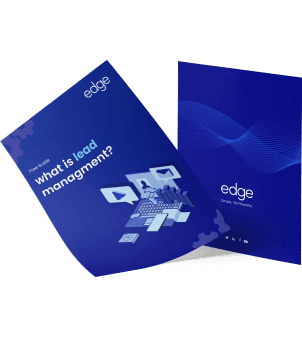Table of Content
1. Introduction
2. Intuitive User Interface
3. Contact Management
4. Sales Pipeline Management
5. Email Integration
6. Reporting and Analytics
7. Automation and Workflow Management
8. Mobile Access
9. Integration Capabilities
10. Customization Options
11. Scalability and Flexibility
12. Conclusion
1. Introduction:
In today's business world, where customer satisfaction and loyalty are crucial for success, Customer Relationship Management (CRM) software is a game-changer.
Imagine having a software solution that helps businesses build strong customer relationships. CRM software centralizes essential customer information, automates key processes, and provides valuable insights. With CRM, organizations can create personalized experiences that foster lasting connections. No more generic approaches – it's all about personalized perfection!
Hold on tight because not all CRM software is created equal! The secret lies in finding the one that's tailor-made for your business, equipped with all the essential features that will propel you to unparalleled success. And guess what? We've got you covered!
In this blog, we'll explore the ten must-have CRM features, uncovering what makes a robust solution stand out. Get ready to read how CRM features can transform your business operations and help you outshine the competition.
2. Intuitive User Interface
Having a simple interface in your CRM software is essential. It means the system is easy to navigate and understand, making it quick for your team to use it well.
The main benefit of a user-friendly interface is that it increases productivity. When your team can easily find and use the features they need, they can focus more on their work and less on figuring out how to use the CRM. With the support of software testing services, such interfaces can be optimized to run business smoothly and efficiently.
An intuitive interface also encourages users to engage with the CRM. When the system is visually appealing and easy to use, employees are more likely to enter accurate information and actively interact with the software. This leads to better data quality and overall satisfaction.
Additionally, a user-friendly interface helps with the adoption of CRM across your organization. When the system is intuitive, employees can quickly learn how to use it, reducing the need for extensive training. It boosts productivity, encourages engagement, and facilitates easy adoption.
3. Contact Management
In today's business landscape, effectively managing customer relationships is the key to success. That's where robust contact management plays a significant role in selecting the best Customer Relationship Management (CRM). It provides the foundation for storing, organizing, and accessing vital customer information, transforming how businesses engage with their audience.
Firstly, robust contact management enables businesses to store and organize customer data in one centralized hub securely. From basic contact details to comprehensive profiles, every piece of information is easily accessible, empowering teams to make informed decisions and deliver personalized experiences.
But it doesn't stop there. Contact segmentation is a game-changer, allowing businesses to categorize their contacts based on demographics, preferences, or purchase history. This segmentation feature empowers targeted marketing campaigns, ensuring messages resonate with specific customer groups, leading to higher engagement and conversions.
Features like tagging and advanced search options prove invaluable to further streamline contact management. Tagging allows businesses to label and filter contacts based on specific attributes or interests, keeping information organized and enabling tailored experiences. Advanced search options provide quick and efficient access to specific customer details, saving time and ensuring the correct information is readily available.
You can also use an online tool such as a business card scanner, which allows users to quickly digitize physical business cards and add contacts directly into the CRM system. This not only saves time but also ensures accuracy and helps teams instantly capture new leads from networking events or meetings.
This enables targeted marketing efforts, personalized experiences, and informed decision-making, ultimately driving customer loyalty and business growth.
4. Sales Pipeline Management
Effective sales pipeline management within CRM software is crucial for driving business success. It enables businesses to track and manage sales opportunities, maximizing conversion rates.
Lead tracking identifies potential customers and nurtures them through the sales funnel.
Deal stages prioritize efforts and accelerate the sales cycle. Activity tracking provides insights into customer preferences, fostering personalized communication. Forecasting tools project future sales, aiding strategic decision-making.
With these features, businesses gain a competitive edge, optimize resource allocation, and set achievable targets. Embrace the power of sales pipeline management to unlock your sales process's full potential and drive revenue growth.
5. Email Integration
In today's fast-paced business landscape, effective communication is key to success. That's where email integration within Customer Relationship Management (CRM) software becomes indispensable. It not only enhances communication but also streamlines workflow, revolutionizing the way businesses connect with their audience.
Email integration within CRM software brings numerous benefits. Firstly, it allows seamless synchronization between your CRM platform and email client, ensuring all interactions are centralized and easily accessible.
Furthermore, tracking capabilities take email communication to new heights. With integrated email tracking, businesses can monitor email opens, clicks, and responses, gaining valuable insights into customer engagement. This information empowers sales teams to follow up quickly, nurturing leads and closing deals more effectively.
With CRM and email seamlessly connected, you'll witness a transformation in your communication strategy.
Suggested Reading, How to send follow-up emails
6. Reporting and Analytics
Data-based decisions are vital for success in the fast-paced business world. Comprehensive reporting and analytics features in CRM software play a crucial role in this process.
These features allow businesses to generate customizable reports, providing tailored insights into sales performance, customer behavior, and marketing effectiveness. Dashboards provide real-time updates on key metrics, allowing teams to monitor progress and take proactive action.
Additionally, data visualization options transform complex data sets into visually appealing charts and graphs, making understanding and communicating insights easier. By leveraging comprehensive reporting and analytics, businesses gain a holistic view of their operations, empowering data-driven decision-making.
They can optimize their strategies, drive growth, and stay ahead in today's competitive market. Embrace the power of CRM reporting and analytics to unlock the full potential of your data and propel your business forward.
7. Automation and Workflow Management
Automation features are revolutionizing businesses by streamlining tasks and boosting efficiency. They eliminate repetitive activities, freeing up time for more strategic work.
Workflow management capabilities, such as task automation, ensure seamless execution of processes, assigning tasks, sending notifications, and tracking progress. Lead nurturing campaigns can be automated, engaging prospects with personalized content and nurturing them toward conversion. Automation also provides valuable follow-up reminders, preventing missed opportunities.
By integrating automation into workflow management systems, businesses save time, reduce errors, and focus on high-value activities. Embracing automation means improved productivity, enhanced customer engagement, and accelerated growth. You can unlock the potential to transform your business into a more efficient and successful operation by utilizing this feature of CRM.
8. Mobile Access
In the rapidly evolving landscape of modern business, having mobile access to CRM software is an absolute must. Picture this: with a cutting-edge mobile app, you can access and edit customer information, stay on top of tasks, and monitor progress wherever your ventures take you. No longer bound by the constraints of a traditional office setup, you can unleash your productivity on the move.
The benefits of mobile CRM are immense. Sales representatives can access customer information while moving, enabling them to provide personalized experiences and close deals quickly. Managers can stay updated on team activities and make informed decisions instantly. Mobile access enhances flexibility, responsiveness, and customer satisfaction.
With mobile access, you have the flexibility and convenience to manage your CRM tasks efficiently and make timely decisions on the fly. Don't let location limit your productivity - empower yourself with mobile CRM and unlock new levels of efficiency.
9. Integration Capabilities
Integrating your CRM system with other important business systems and applications is essential for smooth operations. It improves efficiency, streamlines processes, and provides a comprehensive view of your business. Choose a CRM solution that offers these integrations to maximize your business potential.
One widespread integration is with email marketing platforms. By connecting your CRM with email marketing software, you can automate your email campaigns and track their effectiveness, making engaging with your customers easier and achieving better marketing results.
Integrating your CRM with customer support software is also valuable. It enables customer support agents to access customer information and provide personalized assistance, leading to happier customers and stronger relationships.
Additionally, Integrating your CRM with accounting systems simplifies financial tasks, such as generating invoices and tracking payments. This saves time and reduces errors in managing your financial records.
10. Customization Options
When it comes to CRM software, customization is key. It's important to have a system that can be tailored to meet your business's specific needs and processes.
One way to customize your CRM is by adding custom fields. These fields allow you to store and organize unique data important to your business. Whether tracking specific information or capturing additional details about your customers, custom fields ensure that your CRM works just how you need it to.
Workflows are another valuable customization feature. They let you automate repetitive tasks and define the steps in your business processes. By setting up workflows, you can save time and make sure things are done consistently across your organization.
User permission settings are also necessary. They give you control over who can access and edit certain information in the CRM. This helps protect sensitive data and ensures that only authorized people can view or make changes.
Customizable CRM software allows you to adapt the system to fit your business. With features like custom fields, workflows, and user permission settings, you can ensure your CRM works precisely how you want it to, helping your business thrive.
11. Scalability and Flexibility
Scalability is super essential for business success. That's why it's crucial to pick CRM software that can grow with your business and handle future growth. You want a solution that can handle more customers, adapt to your changing needs, and support your expanding operations. It's like having software that can grow alongside your business.
You'll need more people to use the CRM software when your business grows. So, choosing one that can easily add new users without any problems is essential. You also need enough space to store all your customer data as your business grows. And it's great if the CRM can add new features or modules to support your changing needs.
Having the ability to add new modules or features is important for your business's growth. Your CRM software should be flexible enough to let you integrate additional modules or functionalities as your needs change. You can customize the CRM system to fit your processes, industry requirements, and growth plans.
With this adaptability, you can ensure that your CRM evolves with your business and supports your long-term strategies. It's like having a toolbox to which you can add new tools whenever you need them.
By choosing scalable and flexible CRM software, you're setting yourself up for success. You won't have to worry about switching to a new system whenever your business grows. Instead, you can focus on growing your business with a CRM that can keep up with you.
12. Conclusion:
In conclusion, choosing the right CRM software is essential for your business's success. We've covered ten must-have CRM features that you should look for.
You can do many productive tasks with only one software. Isn't it great? Like, You can,
- Manage contacts
- Track leads
- Manage sales pipelines
- Analyze data
- Integrate it with other systems
- Access it from mobile devices,
- Adapt it to your needs
- Have a simple interface
- Automate tasks
- Enable scalability
When it comes to making the best decision for your business, it's time to put your thinking cap on! Take a moment to envision your goals and aspirations, and let them guide you toward the perfect CRM solution. Remember, every company has its own unique flavor, so it's essential to find a CRM that perfectly aligns with your needs.
Think about the features that will ignite your business and propel you toward success. It's like finding the missing puzzle piece that completes the picture.
Now it's time to take action. Explore different CRM software. Take advantage of free trials and demos to better understand how the software works.
Remember, investing in the right CRM software can benefit your business. It will help you manage customer relationships, boost sales, and drive growth. So don't wait any longer; explore your options today and take your business to new heights.













